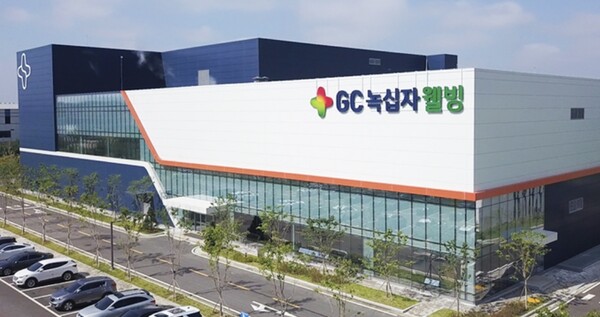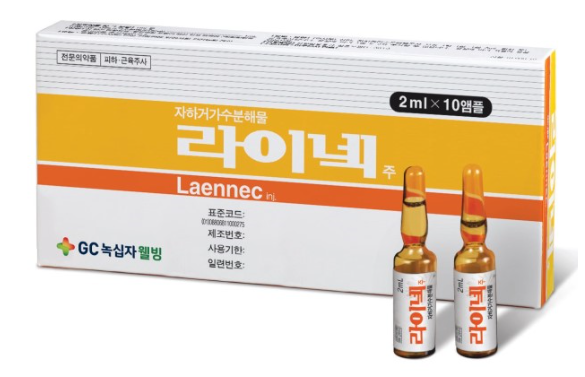GC Wellbeing, a subsidiary of GC Group, is expanding into the botulinum toxin (BTX) market with a 40 billion won ($28 million) deal to acquire a controlling stake in IniBio, a Korean BTX manufacturer.
The acquisition, announced Wednesday, positions GC Wellbeing, a latecomer to the field, to compete against long-established players in a market projected to more than double in value by 2030.

GC Wellbeing will invest 40 billion won to acquire 1,270,250 shares of IniBio, securing a 21.35 percent stake and management control. The transaction, which includes investments via convertible bonds and funding from GC Holdings, is set to close on April 4.
The acquisition marks a strategic pivot for GC Wellbeing, which launched its aesthetics division in 2023. The company is entering a sector currently dominated by Hugel, Daewoong Pharmaceutical, and Medytox, as global demand for BTX—used for both cosmetic and therapeutic applications—surges. Market forecasts predict growth from 12 trillion won in 2024 to 31 trillion won by 2030.
GC Wellbeing is targeting key international markets, including the United States, China, and Brazil.
In China, IniBio has completed phase 3 clinical trials and plans to submit a New Drug Application (NDA), potentially bringing its product to market by late 2025 or early 2026. In Brazil, regulatory approval from ANVISA is expected within the year, with initial product shipments projected before 2026.
“IniBio possesses GMP-certified facilities that meet FDA and EMA standards and has signed long-term supply contracts in seven countries, accelerating its global expansion,” a GC Wellbeing official said.
The U.S., the world’s largest BTX market, is a primary focus. GC Biopharma, another GC Group subsidiary, successfully entered the American market last year with its blood plasma-derived immunoglobulin product, Alyglo. GC Wellbeing said it plans to leverage that experience to fast-track its own BTX entry.

The global BTX market is fiercely contested, with Hugel, Daewoong, and Medytox dominating international sales and setting the pace for expansion.
Hugel, the first Korean company to secure approval in the U.S., Europe, and China, reported record 2024 sales on Thursday, with its BTX segment generating 203.2 billion won, a 20.2 percent year-over-year increase. Overseas sales surged by 39.6 percent, fueled by expansion in the Asia-Pacific region, the U.S., and Europe.
The company said it aims to capture 10 percent of the U.S. medical aesthetics market within three years. “This year, we will continue our growth trajectory across North America, MENA, Asia-Pacific, and Europe, solidifying our global market position,” a Hugel official said.
Daewoong, which also reported record revenue, saw its Nabota brand generate 186.4 billion won in sales, with exports making up 84 percent of revenue. The company now holds a 13 percent share of the U.S. aesthetic BTX market, ranking second in sales.
Despite Korea’s dominance in the BTX industry, the sector has been mired in legal disputes over strain ownership since 2017, with Medytox accusing Daewoong and Hugel of misappropriating its strain.
GC Wellbeing, however, emphasized that IniBio sourced its botulinum strain from Sweden’s Culture Collection University of Gothenburg (CCUG), allowing it to avoid potential legal disputes.
IniBio’s manufacturing capabilities may also provide a competitive edge. The company claims its production technology removes unnecessary proteins and impurities, resulting in an ultra-pure product. “Producing 100 percent pure BTX is rare in the market, but IniBio has the capability to do so,” a GC Wellbeing official said.
Additionally, IniBio operates Korea’s largest single-site GMP-certified BTX production facility. GC Wellbeing now aims to become a "medical solutions biotech company" by integrating its pharmaceutical and aesthetic businesses, combining BTX, dermal fillers, and skin boosters with its flagship human placenta hydrolysate injection, Laennec, which secured regulatory approval last year in China.
After spinning off its health supplement division in April 2023, the company has repositioned itself as a pharmaceutical and medical solutions company. That shift has coincided with strong financial performance, with 2024 revenue rising 11 percent to 133.8 billion won and operating profit jumping 24.1 percent to 13 billion won.
Related articles
- Medytox CEO acquitted in 1st trial over BTX misconduct charges
- Daewoong Pharm marks record-breaking performance driven by new drugs and global expansion plan
- GC Biopharma offers lysosomal storage disorder drug development updates at WORLD Symposium 2025
- GC Biopharma’s Hunterase ICV gets orphan drug designation
- Daewoong expands BTX business in ME market with Saudi Arabian launch
- Hugel secures regulatory approval for BTX in UAE
- Medytox appeals ITC ruling in favor of Hugel over BTX dispute
- Medytox secures Thai FDA approval for hyaluronic acid filler Atiere
- Hugel expands BTX presence in MENA region through strategic partnership with Medica group
- Daewoong secures landmark BTX export deal in Latin America
- CKD Bio’s BTX product wins nod to advance to global markets
- INI Bio accelerates global expansion of botulinum toxin product
- GC Biopharma scores world's 1st approval for recombinant anthrax vaccine
- GC halts production plan for locally-developed BCG vaccine after MFDS rejection
- Chong Kun Dang Bio wins world’s 1st halal nod for Botox rival
- GC Wellbeing wins nod for single-dose osteoarthritis shot
- INI Bio secures Peru nod for BTX Inibo, eyes Brazil next
- GC Holdings’ subsidiary opens cell therapy production hub in US

